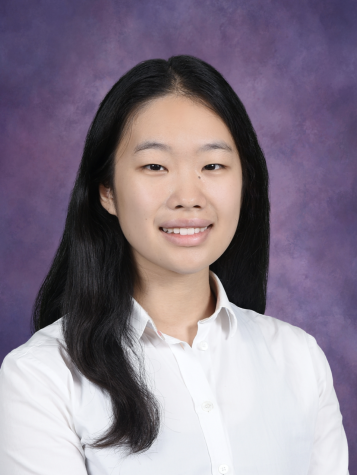A lot of people will call Lexington High School a “STEM school”: our Math, Science, and Computer Science courses are top-notch, not to mention the ample extracurricular opportunities for students pursuing STEM-related fields. Historically, both teams and students alike have excelled in STEM based competitions (congrats to our Science Bowl and Envirothon teams for their 1st place national finishes in 2023!).
However, this can leave students who are interested in humanities fields (or even in both STEM and humanities), such as those focused on English, History, Language, etc. at a loss. Where can they find opportunities to develop their interests? It’s not going to be easy — the decreasing focus on the humanities at LHS is not just reflective of our school, but also of a nationwide undervaluation of this field.
As History lovers, English lovers, and so much more, it’s our duty to work towards creating a space for us within the LHS community. Here’s a couple of things that helped me immensely as a humanities-focused student (with a focus on education and writing) as I journeyed through LHS.
1. Get to Know the Humanities Clubs at LHS
There’s a lot of humanities clubs at LHS, but which ones should you join? While there’s a lot of information about STEM-focused clubs (through word-of-mouth and other means), there’s also great humanities-focused clubs thriving in our community. Here’s an introduction to some of them:
Debate Club/Team: There are three types of debate at LHS: Lincoln-Douglas, Public Forum, and Policy. Though the Debate Club and Team are similar, the Debate Team is generally more intense, as students have to spend countless hours preparing and researching debate cases, working with their partner and/or teammates, and competing in local, statewide, or national competitions like the Tournament of Champions. Others work as Debate Teaching Assistants, teaching incoming underclassmen essential debate skills. While debate may seem intimidating, it’s a very rewarding experience, and you can tailor the amount of time you commit according to your scheduling needs.
LHS Folio: Our school’s literary magazine, which releases digital and print issues of student Art & Writing three times a year. As a member of LHS Folio (usually an Art Editor, Prose Editor, or Layout Editor), you’ll be asked to accept/reject pieces for publication, prepare the magazine for print/digital release, and more. You can also engage with them as a contributor in Art or Writing during their submission periods!
Model UN: At its core, Model UN students impersonate the Model UN General assembly, acting as an ambassador to a certain country while debating topics like climate action, healthcare, equality, and more. Model UN Students also attend MUN conferences on the state, national and international level.
The Musket: The school newspaper (where you’re reading this from right now) is one of LHS’s oldest and biggest clubs. Within the Musket, staff writers will learn how to write journalistic articles (news, features, etc.) while working alongside a partner. Editors will learn to provide feedback on articles and mentor staff writers throughout the issue production process. In addition to writers and editors, there are layout editors who design the newspaper’s look, online editors who handle digital content, columnists who contribute regular columns, and photographers who add visual elements to the stories.
Lexington Perspectives (Lexspects): Our school’s cultural & political review, which usually releases three issues a year. Lexspects covers topics beyond the scope of LHS (social issues, cultural phenomena, and more), which allows students to write about topics beyond our school community. Furthermore, it’s more common for each staff member to write one (or multiple articles) independently, as opposed to writing in pairs. Like the Musket, they also have columnists reporting on specific issues.
Creative Writing Club: Our school’s creative writing club, which usually meets up once a week to do group writing exercises, workshop members’ pieces, and more. They will also work on larger projects — this year, for example, students had a chance to judge pieces for Lexington’s “My Truth is” Competition. Some of the writing exercises are definitely catered to prose-writers (examining plot, character, storybuilding, and more), but overall, it’s an amazing opportunity for young writers looking to find a community.
There are plenty of other clubs, such as the History Club and Quizbowl, to mention a few, that also provide ample opportunities for students interested in the humanities to find a community of their interest.
2. Talk to Your Teachers About Specific Humanities Opportunities
This sounds silly and straightforward, but there’s actually more opportunities than you might think lurking beneath the folds of LHS’s humanities departments.
The LHS English Department, for example, has recently begun offering a new program where older students can act as an English TA for freshman and sophomore classes. There’s also their newly instated ELA awards, in which teachers in the English Department nominate students that best exhibit the department’s core values: class participation, growth mindset, exemplary writing, and effort. Some teachers will also post a list of writing or English opportunities in Google Classroom, which students can find on their own time or ask teachers about. If you have an English specific project or idea, ask your teacher if there are any opportunities you could explore!
As for History, our school’s other major Humanities Department, there’s also ample exploration in that regard. While there may not be as many structured activities like in the English department, teachers can nominate you for the National History Day award, the Gilder Lehrman History Prize, and more — they may also encourage you to submit history research to the Concord Review.
Furthermore, some teachers will definitely be open to you taking additional explorations outside of the class. In my sophomore year, I talked to my AP World History teacher and had the opportunity to take extra explorations into the US Education System: through supplementary reading like Johnathan Kozol’s Savage inequalities and other texts, I learned more about the systematic inequalities of the US Education System. It also allowed me to skip class and attend a group discussion with another APUSH group, which (beyond being kinda fun) furthered my understanding of perspectives towards education, both in history and in the present reality.
Altogether, your teachers are meant to guide you, and they want to see you explore the fields you’re passionate about. Don’t be afraid to ask about additional ways you can study a subject!
3. Don’t Compare yourself to Others
There’s a cliche quote that involves fish, and trees, and swimming that essentially boils down to this: everyone has things they’re good at, and they won’t know unless they dedicate themselves to those things. Embrace your fishyness!
That means that while you should try to take classes and opportunities that challenge you, you shouldn’t push yourself to do something simply because “everyone else is doing it.” Given our school’s challenging AP STEM courses and excellent STEM clubs, it may only seem right that you engage with these to the same extent as everyone else. I spent most of middle and early high school wishing that I was good at math and science as all of my other friends, and joined many STEM-related clubs which I didn’t feel happy in (I’m sorry to my Detector Building and Anatomy & Physiology partners from sophomore year Science Olympiad; I really didn’t know what we were doing).
In contrast, I’ve found myself a lot happier now that I’m taking things the way that feels best: for me, that’s engaging with STEM curiously while focusing my efforts on English and Writing, since that’s the space I thrive within. If you’re a humanities student (or anyone, really), try to seek out activities that make you happy AND academically challenged. You could pursue a field that’s out of your comfort zone, but if you truly find that it isn’t for you, don’t feel pressured to continue.
4. Welcome to the World…
Truth be told, you’ll only get to experience the full world of your experiences (be it writing, philosophy, or history) if you venture outside of LHS. Even the STEM-miest of STEM kids will spend time searching for a community outside of our school, be it in a nonprofit, research, or more. Thus, it’s important to acknowledge that even though your options may seem limited as a humanities-lover, there’s a breadth of opportunities and communities waiting for you. If you can’t find the people for you at Lexington, know that there will be many people outside of the LHS community who share your interests.
My final note would simply be: stay strong, soldier! I’m a senior this year, and while all of us have been put through the wringer, I don’t think that I’m discouraged by the apparent “lack” of humanities-focus at LHS.
We’ve always been here, and so we always will. Regardless of how alone it may feel at times, it won’t stop us from exploring our love and art, whatever it may be.
Make the best of high school, humanities friends—I’ll see you on the other side.
Yours truly,
Joanna Liu



